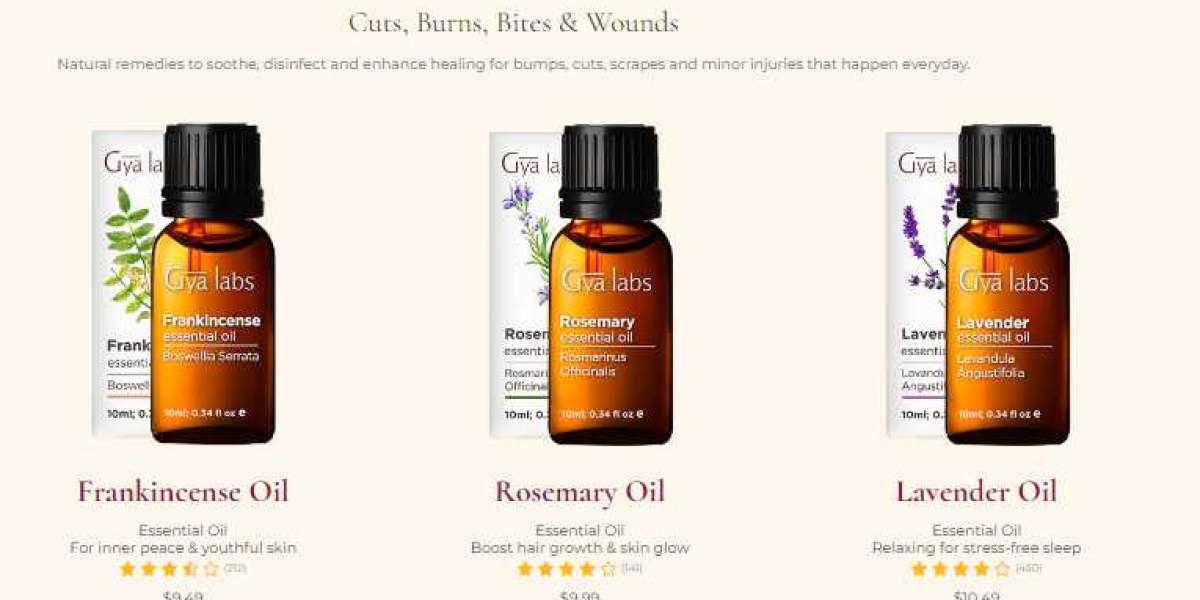When it comes to healing wounds, nature has provided us with some remarkable tools, and among them, essential oils stand out as a powerful remedy. These natural extracts, derived from plants and known for their therapeutic properties, have gained significant attention in the field of wound healing. In this article, we will delve into the science behind essential oils and how they can effectively promote the healing of wounds.
Understanding the Magic of Essential Oils
Essential oils are highly concentrated liquids extracted from various parts of plants, including leaves, stems, flowers, and roots. They are packed with a wide range of active compounds, such as terpenes and phenols, which contribute to their medicinal properties.
The Role of Essential Oils in Wound Healing
Essential oils play a crucial role in wound healing due to their antimicrobial, anti-inflammatory, and tissue-regenerating properties. Here are some of the ways in which they work their magic:
Antimicrobial Action: Essential oils like tea tree oil and lavender oil have potent antimicrobial properties. They can help prevent infections by inhibiting the growth of harmful bacteria and fungi on the wound.
Anti-Inflammatory Effects: Inflammation is a natural response to wounds, but excessive inflammation can slow down the healing process. Essential oils, such as chamomile and frankincense, help reduce inflammation, allowing the wound to heal more efficiently.
Promoting Cell Regeneration: Oils like rosehip and calendula stimulate the growth of new cells, which is vital for wound healing. They aid in the formation of healthy tissue and minimize scarring.
Essential Oils for Open Wounds
Now, let's specifically focus on how essential oils can be used for open wounds. It's important to note that not all essential oils are suitable for open wounds, and some may need to be diluted with a carrier oil. Here are a few essential oils that are particularly effective:
Lavender Oil: Lavender oil is well-known for its gentle yet potent antiseptic properties. It can be applied directly to minor cuts and abrasions to prevent infection and promote healing.
Tea Tree Oil: With its strong antimicrobial qualities, tea tree oil is excellent for treating open wounds. Dilute it with a carrier oil and apply it to the affected area to prevent bacterial growth.
Chamomile Oil: Chamomile has anti-inflammatory properties and is perfect for soothing irritated skin around open wounds. It can also help with pain relief.
Frankincense Oil: Frankincense oil supports cell regeneration and is effective in reducing scarring. It can be applied to open wounds after proper dilution.
Caution and Safety
While essential oils offer numerous benefits for wound healing, it's crucial to use them safely. Always perform a patch test to check for allergies or skin sensitivities, and ensure that the essential oils you use are of high quality. If a wound is deep or serious, consult a healthcare professional.
In Conclusion
Essential oils have proven to be valuable allies in the journey of wound healing. Their natural and holistic approach, coupled with their scientific backing, makes them a compelling choice for those seeking effective and gentle remedies for open wounds. From lavender to tea tree, these essential oils can make a significant difference in promoting healing and minimizing scarring.
Remember, essential oils are not a replacement for professional medical care, but they can certainly complement traditional wound healing methods. When used correctly, they harness the power of nature to assist in the body's natural healing processes, ultimately leading to faster recovery and improved skin health.



